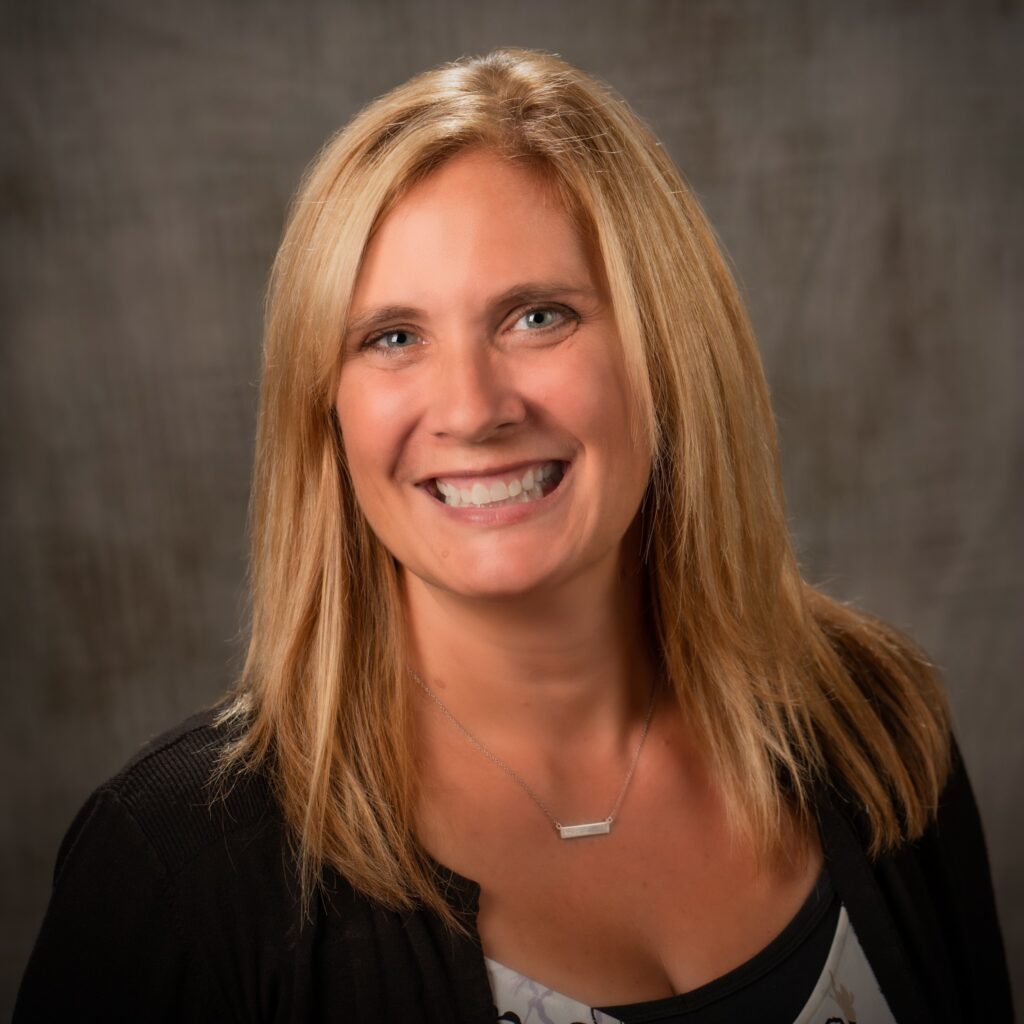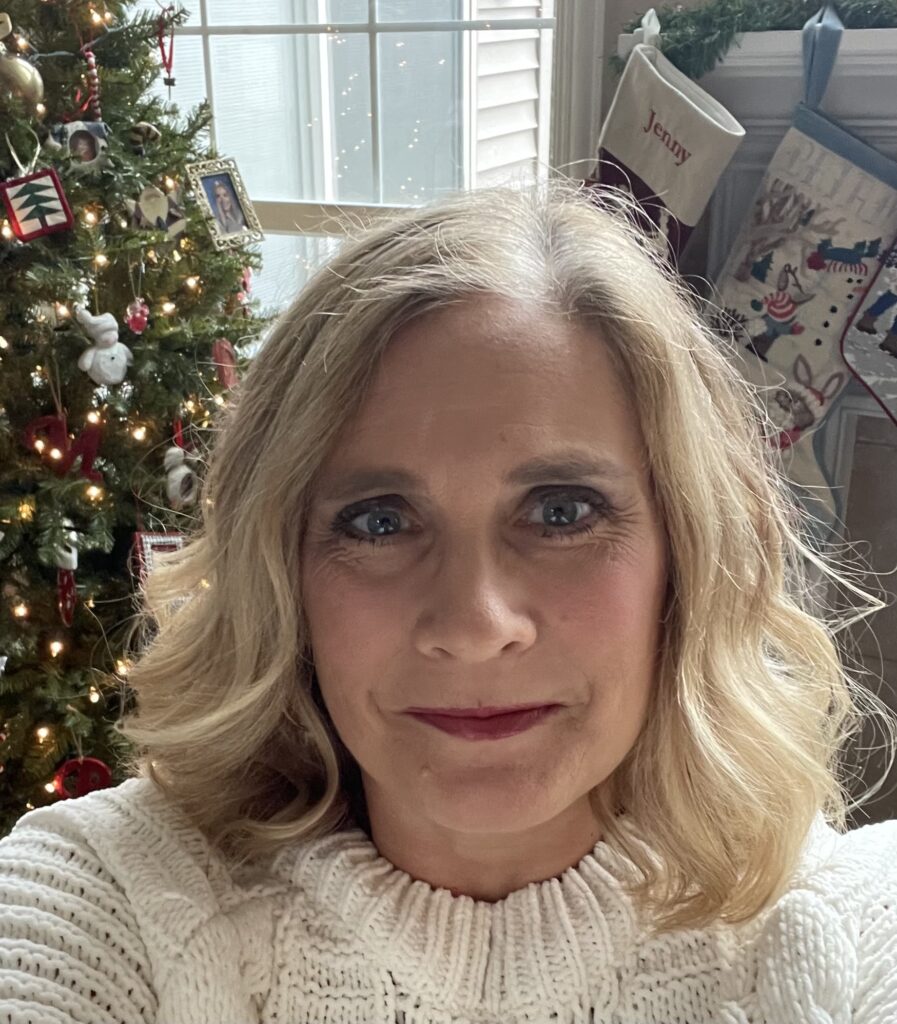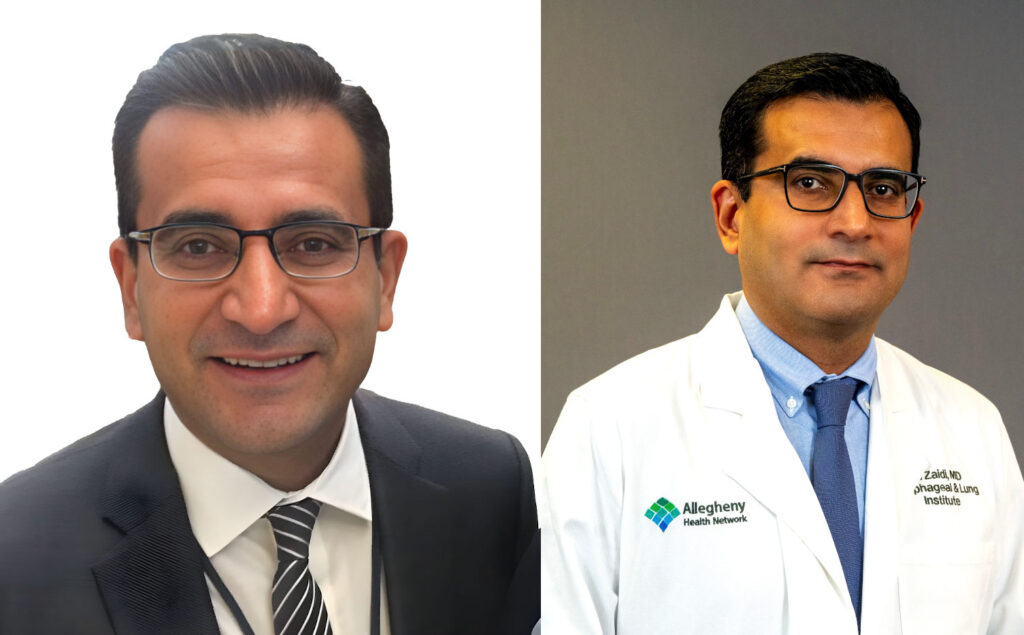Navigating Hope Behind the Scenes: Leading Excellence in Cancer Care
December 10, 2024

Navigating healthcare can feel like maneuvering through a bewildering labyrinth—a maze of medical jargon, complex treatments, and overwhelming emotions. The disorientation can become even more pronounced with a lung cancer diagnosis, where each turn seems fraught with uncertainty, fear, and critical decisions. Patients often feel lost, trying to find their way through an intricate medical landscape.
The good news? There is help – and with it, hope!
The Lifeline of Nurse Navigation
Sterile hospital corridors transform when Laura Hines, Manager Oncology Services, and her team of Nurse Navigators enter. At OSF Healthcare Cancer Institute, these dedicated professionals from the Oncology Services Management team are more than healthcare workers—they are true lifelines, beacons of hope for patients facing their most vulnerable moments.
As Laura explains, the center’s mission goes beyond traditional medical care: “Our vision is to provide the best care at the best place, where everyone is treated equally. We make sure that patients get treated the way they deserve to be treated.” This commitment is evident in every interaction, where compassion and wisdom transcend medical charts and clinical diagnoses. Their approach is deeply personal, transforming what could be a cold, impersonal medical experience into a journey of human connection and support.
Laura and her team represent a revolutionary approach to healthcare: the oncology nurse navigator. Born from Dr. Harold Freeman’s groundbreaking work in the early 2000s, these specialized professionals are more than traditional healthcare workers. They are compassionate translators of hope, helping patients piece together their cancer journey one step at a time.
Oncology nurse navigators are highly specialized healthcare professionals who serve as constant guides through the complex cancer care landscape. Their responsibilities extend beyond traditional nursing roles, requiring a unique blend of advanced clinical expertise, emotional intelligence, and systemic problem-solving skills.
These professionals typically begin with a robust nursing foundation, including a Bachelor of Science in Nursing (BSN) or Master of Science in Nursing (MSN) credentials, accompanied by significant clinical oncology experience. Specialized certification through organizations like the Oncology Nursing Society and additional training in patient navigation is critical. With daily responsibilities that encompass a multifaceted approach to coordinating care across multiple medical specialties, navigators help patients:
- understand intricate treatment protocols
- address financial and logistical barriers to treatment
- provide emotional support
- serve as a consistent point of communication between patients, families, and healthcare teams.
Oncology nurse navigators must move between complex healthcare systems, interpret medical terminology, schedule diagnostic tests and specialist consultations, and ensure patients can access necessary resources—from transportation assistance to financial counseling and psychological support. Beyond clinical skills, successful nurse navigators must also possess exceptional communication abilities, deep empathy, cultural sensitivity, and the capacity to remain calm and supportive during patients’ most vulnerable moments. Their training involves not just medical knowledge, but also courses in patient advocacy, healthcare system navigation, communication strategies, and psychosocial support techniques.
The Human Connection

Nurse navigators forge a profound human connection in a potentially impersonal medical system. Consider, for instance, the delicate conversation for patients facing a potentially terminal diagnosis: nurse navigators offer unwavering compassion, and their approach is revolutionary in its simplicity: “Whatever [the patient] decides is okay. You don’t have to fight just because that’s what you’re supposed to do,” Laura explains. Navigators embody an approach that advocates for patient autonomy, avoids judgment, and provides compassionate guidance, helping individuals make informed decisions about their care and quality of life.
“We have to be the ears and the voice,” Laura states, emphasizing the nurse navigator’s role as a translator of bewildering medical jargon into clear language, a coordinator between medical specialists, and a guide who ensures patients understand every step of their journey.
A Holistic Approach to Care
“Our job isn’t just about treating cancer,” Laura explains. “It’s about treating the whole person.” A holistic approach means addressing challenges that extend past the medical treatments, and that means doing more than just treating disease; it also means helping to restore dignity. Laura and her team help patients experience life after diagnosis differently—finding strength in unexpected places and addressing challenges that extend far beyond medical treatment, including:
- Financial barriers
- Transportation obstacles
- Emotional support
- Complex treatment understanding
They recognize each patient’s unique circumstances, particularly for vulnerable populations. This might mean helping with food insecurity, treatment transportation, understanding insurance complexities, or connecting patients to social support services.
How vital are nurse navigators? The numbers tell a powerful story, and the measurable impact is tangible:
- Patients with nurse navigators experience 30% less treatment-related anxiety
- Navigation services can improve treatment adherence by up to 25%
- Patients report feeling more empowered and informed about their care journey
Walking With
As Lung Cancer Awareness Month draws to a close, we’re reminded that behind every medical statistic is a narrative of hope, joy, and even gratitude. Nurse navigators like Laura —honoring the memory of her mother, Susan Sommer, who lost her battle with breast cancer in 2016—are knowledge bearers and compassionate guides, helping patients write chapters of survival with no regrets.
“My mother taught me that living with cancer forces you to look at life differently,” Laura reflects. As a breast cancer survivor herself, she embodies her mother’s resilient spirit, transforming challenges into inspiration and helping others do the same: “I live every day as if it’s my last with genuine enjoyment. I live without regrets.”
Laura’s philosophy permeates everything she does, and it’s evident. She and her team of nurse navigators represent something greater than a profession—they are guardians of hope who ensure no patient walks alone.
1A study published in the Journal of Clinical Oncology found that patients who worked with nurse navigators experienced a significant reduction in treatment-related anxiety. Specifically, nurse navigation programs have been associated with improved emotional well-being and a reduction in psychological distress for patients. Reference: “The Effect of Nurse Navigation on Cancer Patient Anxiety: A Systematic Review” by various authors. Published in Journal of Clinical Oncology, 2013.
2The Oncology Nursing Forum and other nursing journals report that cancer navigation services can improve treatment adherence by helping patients understand their treatment plan, providing reminders, and offering emotional and logistical support. Reference: Oncology Nursing Forum, “Impact of Nurse Navigators on Patient Adherence,” 2019. This study showed up to a 25% increase in adherence to treatment protocols due to the personalized support from navigators.
3Studies have consistently shown that patients working with nurse navigators feel more empowered, informed, and involved in their care. For example, a study published in the Journal of Cancer Education found that patients reported a higher sense of control over their treatment journey and felt more confident in making decisions when they had a nurse navigator. Reference: “The Role of Nurse Navigators in Improving Cancer Patient Outcomes,” Journal of Cancer Education, 2020. In this article, cancer patients reported feeling more informed, less overwhelmed, and more empowered about their treatment when they had a dedicated navigator.



